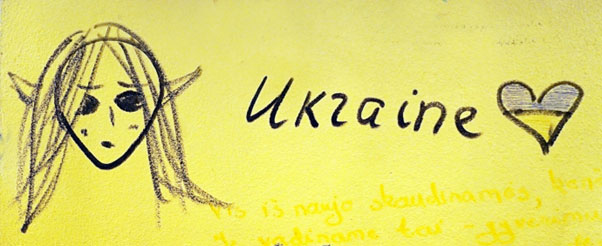Alan Dearling has just spent a couple of weeks in Vilnius, capital of Lithuania. Here’s Part One of three reports from his trip.
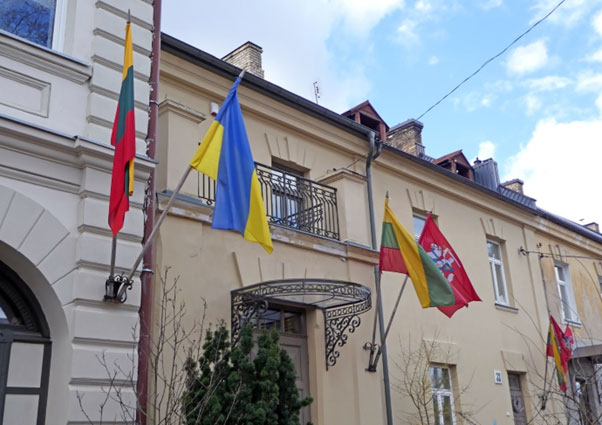
Memories of occupation are still very much alive in the Baltic state of Lithuania. Lithuania only gained its independence back from the USSR in 1990. Now, the spectre of Putin’s Russia and the war in Ukraine are seen hovering above the country in a variety of ways. Flags of Ukraine, the European Union, NATO and Lithuania are draped on buildings, and on flagpoles outside hundreds of buildings throughout Vilnius, the state capital. Events are being held almost daily to display solidarity with Ukraine and to honour the victims that died in the earlier war of occupation, including the 14 who died and hundreds who were injured in Vilnius on January 13, 1991. On that day, Soviet troops still stationed in the country attempted to overthrow the Lithuanian government. The attack took place as Lithuanians defended the TV tower and the Radio and Television Committee building. Many had been members the ‘Freedom League’.
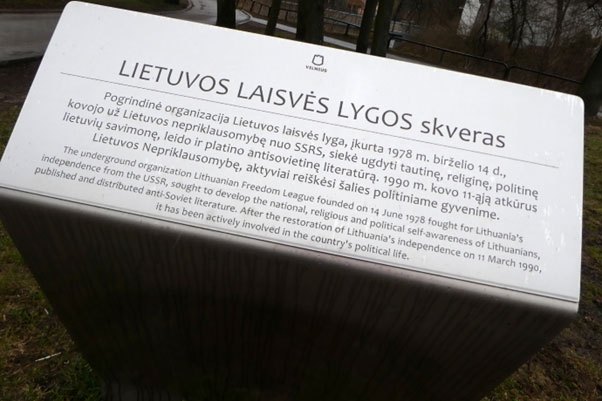
The 2023 anniversary took place against the backdrop of Russia’s invasion of Ukraine. At it, the Lithuanian President Gitanas Nausėda said that Lithuania’s triumph is one of “light against evil”, offering an inspiration for Ukrainians today, as they fight on after a year of conflict to preserve their independence.
Video report: https://www.voanews.com/a/in-year-two-of-russia-s-war-on-ukraine-lithuanians-on-guard/7006148.html
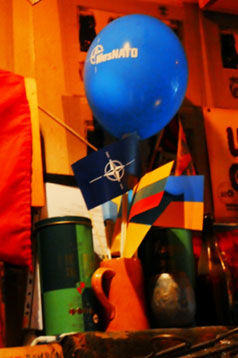
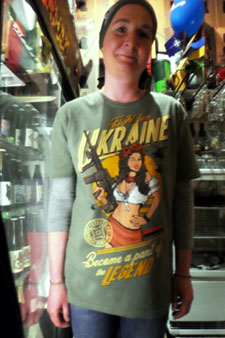
During my visit, Finland joined NATO. Celebrations were held across the city of Vilnius and NATO troops called into bars, cafes and restaurants handing out balloons and flags. For the Baltic states, the addition of Finland provides extra leverage against Russia and very significant additional border protection from potential invasion. In conversations I had with locals, Russia and the conflict in Ukraine are often topics of extreme passion, worry, and at times contradictory opinions and viewpoints.
Currently, according to a NATO exhibition in the recently renovated Bastion in the old town of Vilnius, there are approximately 1,600 NATO troops in Lithuania. And this is part of the backdrop to the Lithuanian parliament, Seimas, where during my visit, it unanimously adopted a resolution for the upcoming NATO summit, the first to be held in Vilnius, to offer an official invitation for Ukraine to join the NATO alliance. According to the Lithuanian resolution, submitted by representatives of various political groups in the parliamentary Committees on Foreign Affairs and National Security and Defence, this would be a strategic decision by NATO in pursuit of peace in Ukraine and Europe.
To put this in a rather different context, here are excerpts from Joshua Askew’s report from Euronews on line: “Russia’s military invasion of Ukraine has drawn fierce condemnation from across Europe. But not in all quarters. In many countries neighbouring Russia, especially those that once formed part of the USSR, a small minority of mostly Russian speakers have come out in support of the invasion and defended Putin’s aims. One example is the small Baltic state of Lithuania, which borders the Russian enclave of Kaliningrad. Russian speakers are the second-largest minority in Lithuania.”
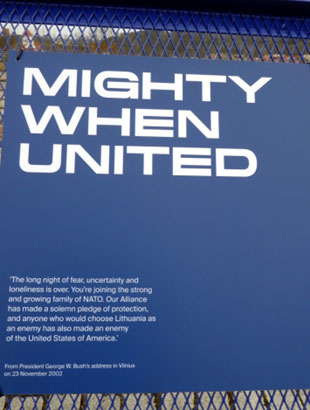
However, the loudest and most dominant topic of debate in Lithuania, concerns ‘what comes next’ if Ukraine loses its war with Russia. SkyNews has reported on the risk of Russia attacking Lithuania if Ukraine falls: https://www.youtube.com/watch?v=NmsoQ3cUUjE
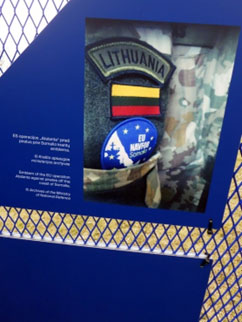
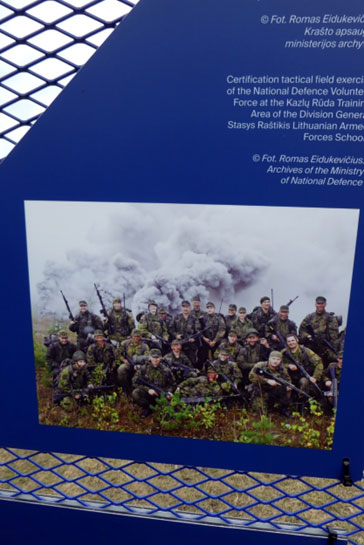
‘We must be prepared’ – is the stark warning from many in Lithuania as Russian aggression linked to the war in Ukraine builds on the border with Belarus. This south-western border of Lithuania has often-time been called, ‘NATO’s Achilles’ heel’ and ‘the most dangerous place on earth’. A major defeat in Ukraine by Russia, could lead to the Baltic nations being attacked by Russia, or, its ally Belarus.
Here’s an informative account from Karolis Vyšniauskas on-line in The Wall Street Journal: Dateline: February 16th 2023.
“My generation was the one to finally break free. We were EU citizens, protected by NATO and increasingly cosmopolitan. Then came the Russian invasion of Ukraine. As a Lithuanian friend put it to me, “Only after the war started did I properly look at the map. I mean, I looked at it.”
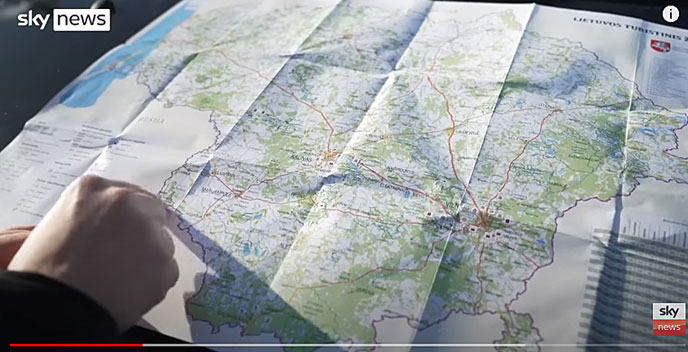
We had always known that Lithuania occupied an unfortunate geographical position on the frontier of the EU, with Russia’s enclave of Kaliningrad to the west and Belarus to the east. In all its history, Lithuania had been an independent republic for less than six decades. But growing up after the collapse of the Soviet Union, we somehow took peace and independence for granted.
Unlike Ukraine, Lithuania can claim the protection of NATO’s Article 5, which says that an attack “against one” NATO country is an attack “against them all.” In September, President Biden reaffirmed that commitment, saying that the U.S. and NATO would defend “every single inch of NATO territory.” And yet, some in Lithuania have been preparing for the worst. In the first month after Russia invaded Ukraine, requests for permission to purchase a weapon in Lithuania quadrupled. When Russia took control of the Chernobyl nuclear plant last February, iodide pills to protect against radiation leapt from the shelves of Lithuanian pharmacies. Nuclear fears, in particular, loom very large in the Baltics. What if a cornered Vladimir Putin decides to unleash his arsenal?
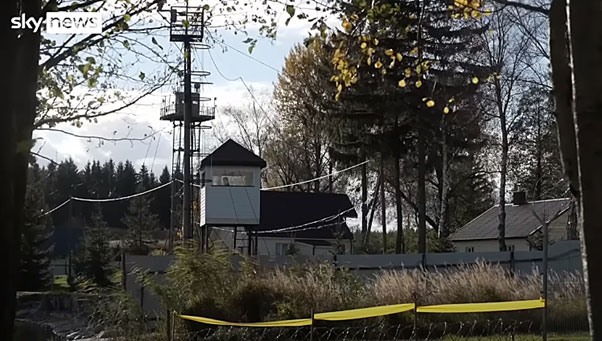
“Then we will all die,” one friend in Vilnius told me. “But I cannot live a life paralyzed by something I cannot control.”
Last month, I returned to Vilnius with a master’s degree, but with little appetite for celebration. The city experienced a total of 5 hours of sun in the whole month of January—the fewest in recorded history. The mood is gloomy. My journalism colleagues are tired. A colleague went to report from Kherson. I worry about him. I am slowly coming to a realization that the country I left before my studies no longer exists. Our society is in a limbo between war and peace, calm on the outside, burning on the inside.
Absent is a strong counter movement inside Russia itself, the Kremlin’s imperial ambitions will continue to threaten the people living within Russia’s “sphere of influence”—what a heartless, colonial term that is. Perhaps losing in Ukraine will at last ignite an anti-colonial movement in Russia, as happened in Germany after its defeat in World War II. Or maybe the Ukrainians are just buying the rest of us more time.”
Worrying times in Lithuania and the Baltic States should be worrying times for all the nations in the Free World. There are plenty of smiling faces in Lithuania, but they are sometimes darkened by deeper frowns.
